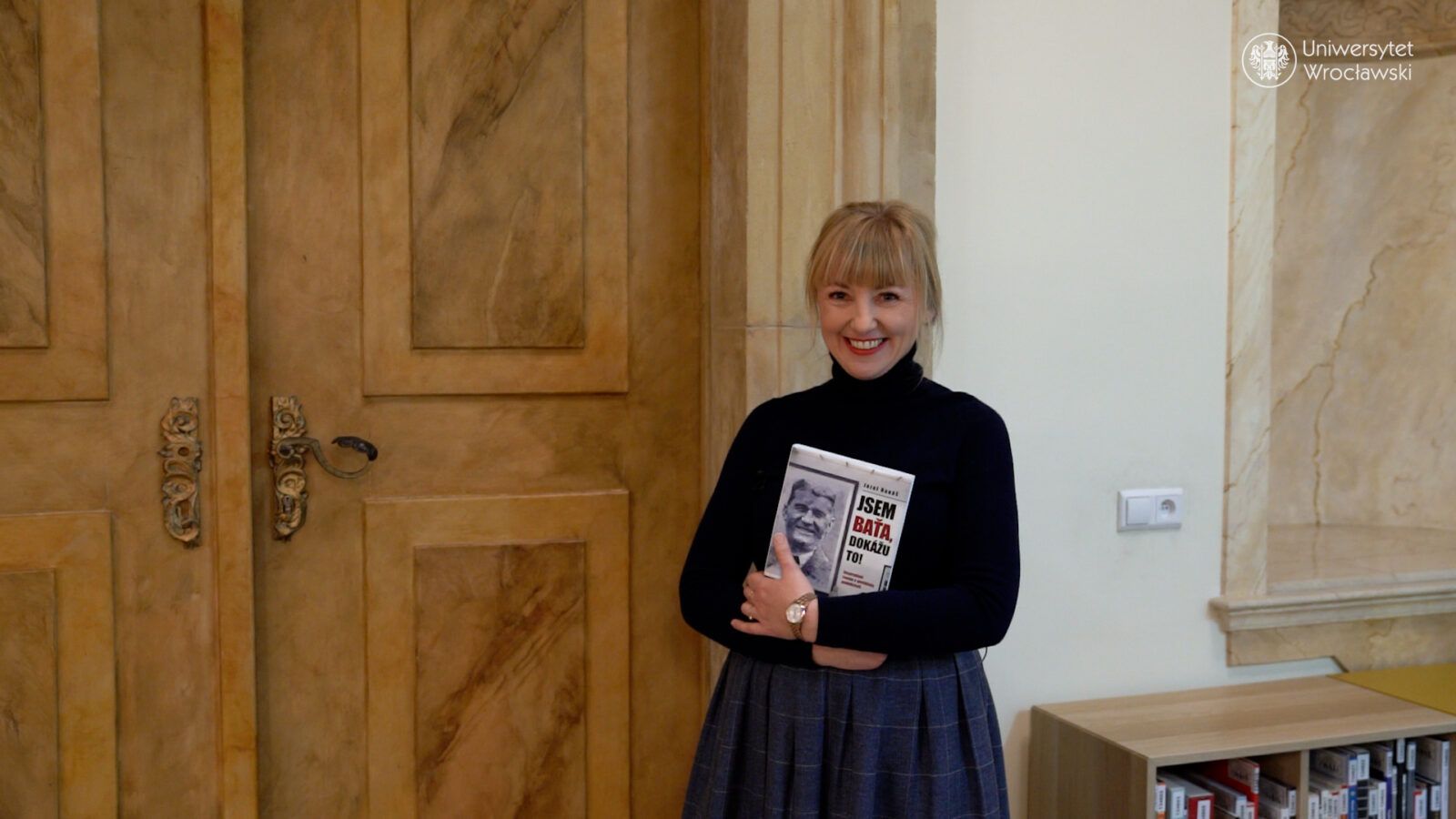
Women’s Week at UWr – dr Magdalena Matkowska-Jerzyk
Due to National Women’s Day this week, we decided to introduce our academic community to women – scientists, researchers, professors, doctors, and doctoral students who conduct classes and research in their labs and workshops, establishments and institutes, and faculties every day. Today, we would like to introduce you to dr Magdalena Matkowską-Jerzyk from The Department of Bohemian Studies at the Institute of Slavic Studies at the University of Wrocław. What are her tasks, interests, and advice for young female researchers starting in the academic world? See yourself!
Dr Magdalena Matkowska-Jerzyk is a linguist, bohemian, and journalist. Her current research deals with linguistic aspects of Bat’a company activities in Czechoslovakia and the Czech Republic. She is the author of audiovisual translations of more than a hundred TV programs and documentaries for Polish and Czech television. For the past several years, she has worked as a collaboration ambassador between Poland and the Czech Republic. Furthermore, Magdalena Matkowska-Jerzyk is also a co-author of international cross-border projects as a part of the Interreg VA program, Miniatura 6 2022 [Miniature 6] contest laureate, and laureate of Ministry of Culture and National Heritage scholarship in 2023.
During the interview, Magdalena Matkowska-Jerzyk told us where the interest in Bat’a and Tomas Bat’a himself came from.
“As a Bohemian linguist working at the University of Wrocław, I have never expected that I will be conducting research on Bat’a and their shoes which have always been my passion. I got my love for Bat’a from my grandfather. He lived in Lviv and told me, time and time again, that one of his most beautiful memories from there, was the one when he used to go to Bat’a store with his mother.”
Dr Matkowska-Jerzyk has recently been to Zlin which Tomas Bat’a made famous.
“I am in love with Tomas Bat’a story. Recently, I was able to visit Zlin and thanks to that I became a contest laureate. The miniature 6 contest is financed and organized by National Science Center. I can conduct linguistic research related to the business activities of Bat’a in Czechoslovakia as well as in Czech Republic in my free time. These linguistic aspects play a pivotal role not only for Zlin inhabitants but also for the Tomas Bat’a foundation. The foundation supports any initiatives relating to Tomas Bat’a.”
Conducting research is not the only thing Magdalena Matkowska-Jerzyk does. All of her interests connect through Czech.
“Except for my linguistic activity, I have also been a journalist for a very long time now. I am a journalism graduate. I co-authored TV programs and documentaries available on Polish and Czech television. The documentaries deal with Polish and Czech cross-border. For the past several years, I have worked as a Polish-Czech collaboration ambassador, which, I have to say, now is in its prime. I am also a Czech translator. I’ve translated 100 TV programs and documentaries. For years, I have worked with televisions on both sides of the border. I pass my knowledge on to my students through audiovisual translation classes, translation workshops, and cross-border collaboration classes. I know my students love the practical classes because I try to tell them about all the experiences I managed to gather throughout these past 20 years as a translator. It is a knowledge they cannot possess from any textbook. During BA and MA Seminars, I try to let my students choose their own academic path as much as possible. I believe they should choose their own topic and go with it. My newest passion is the phenomenon of Henryk Sienkiewicz in Czech Republic. It turned out to be bull’s eye because I received a scholarship for this project from the Minister of Culture and National Heritage. Sienkiewicz’s books can be found in every Czech bookstore. It is said that all his books have been translated into Czech at least twice.”
“When it comes to advice I have for young female researchers… I think Tomas Bat’a would get offended if I didn’t mention the 10 rules he came up with for women 100 years ago. Now, some ladies may get upset and say that they are just some obsolete nonsense but I think that each and everyone one of us can interpret them in her own way. They’re in Czech, at the end of the day.”
Translated by Anna Kobylowska (student of English Studies at the University of Wrocław) as part of the translation practice.



